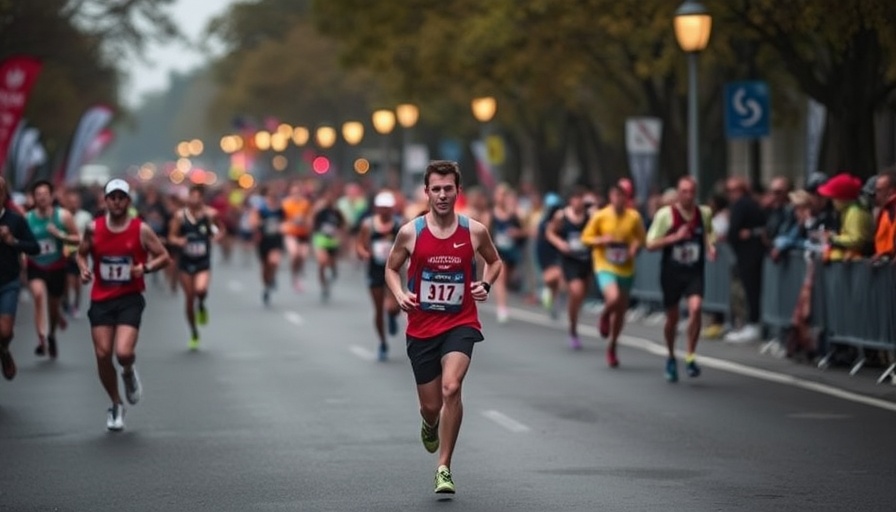
Why Are Endurance Runners Feeling Down?
Marathon running is often celebrated for its health benefits; however, recent studies reveal a troubling paradox: many marathon runners are not only physically exhausted but also mentally strained. A study by Leo Lundy, a seasoned marathoner with over 400 races under his belt, uncovered that as much as 25% of endurance runners exhibit high levels of anxiety and depression. With the running community booming, it's essential to examine what’s happening beneath the surface.
A Closer Look at Mental Health in Runners
Lundy's findings highlight that even with the famed runner's high—an endorphin-induced euphoria experienced after long runs—many marathoners report feelings of emptiness and melancholy post-race. This resonates with additional research from Linnaeus University, which found that endurance athletes often encounter varied emotions post-race, including loss of energy and ambivalence. While 94% of runners believe that their sport is beneficial for mental health, the stark reality is that the rigorous commitment to training for marathons can sometimes do more harm than good.
Building a Race Around Emotional Wellness
Beyond physical training, there are critical aspects of mental health that runners often overlook. The demands of marathon preparation can lead to what Lundy refers to as a psychological burden, making running a coping mechanism rather than a passion. Therefore, prioritizing enjoyment over competitive performance is vital for maintaining mental well-being.
Relationships on the Line: The Social Impact of Running
One of the most poignant revelations about marathon running is its potential to strain personal relationships. The term “divorce by marathon” is becoming increasingly prevalent among the runner community, as partners may feel sidelined by the time and energy dedicated to training. Finding balance is essential; supporting each other as runners is important to ensure that loved ones do not feel neglected.
Advice for Runners: Tips to Preserve Mental Health
To promote a healthier relationship with running, here are some suggestions:
- Listen to your body: Avoid overtraining by paying attention to your physical and emotional cues.
- Prioritize Recovery: Ensure you include rest in your training regimen to allow your body and mind to recover.
- Stay Connected: Maintain open communication with loved ones about your training commitments and make time for them amidst your race preparations.
- Seek Support: Don't hesitate to attend therapy or join support groups for runners to discuss challenges you might be facing.
- Enjoy the Journey: Remember that running should also be fun, not just about completing distances or achieving personal bests.
Re-Defining Success in Running
Running cannot merely be reduced to physical achievement; it involves emotional well-being and personal fulfillment. Encouraging a culture that values mental health alongside performance will not only benefit the individual runner but also strengthen the communities surrounding them.
So, marathon runners, let’s strive for a healthy balance! Remember: It’s okay to take a moment, breathe, and enjoy the journey instead of just focusing on the finish line.
Take the first step toward enhancing your mental wellness. Explore local health and wellness events in San Antonio to nurture both your physical and emotional well-being. The path to vitality begins with you!
 Add Element
Add Element  Add Row
Add Row 




Write A Comment